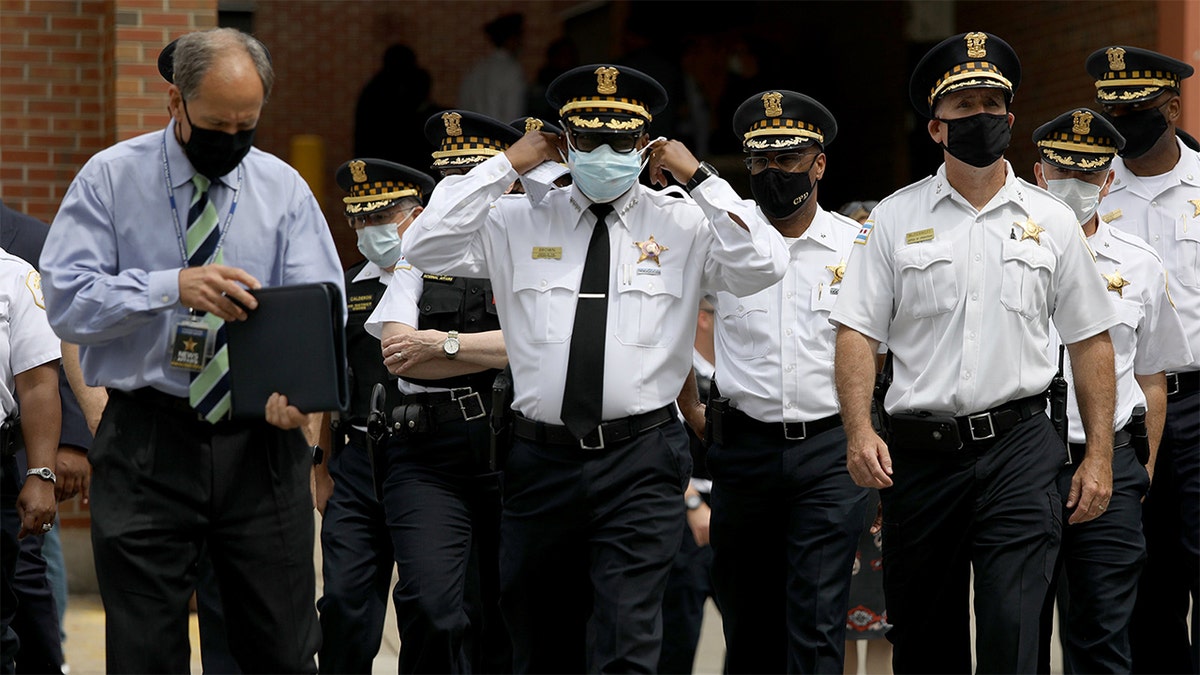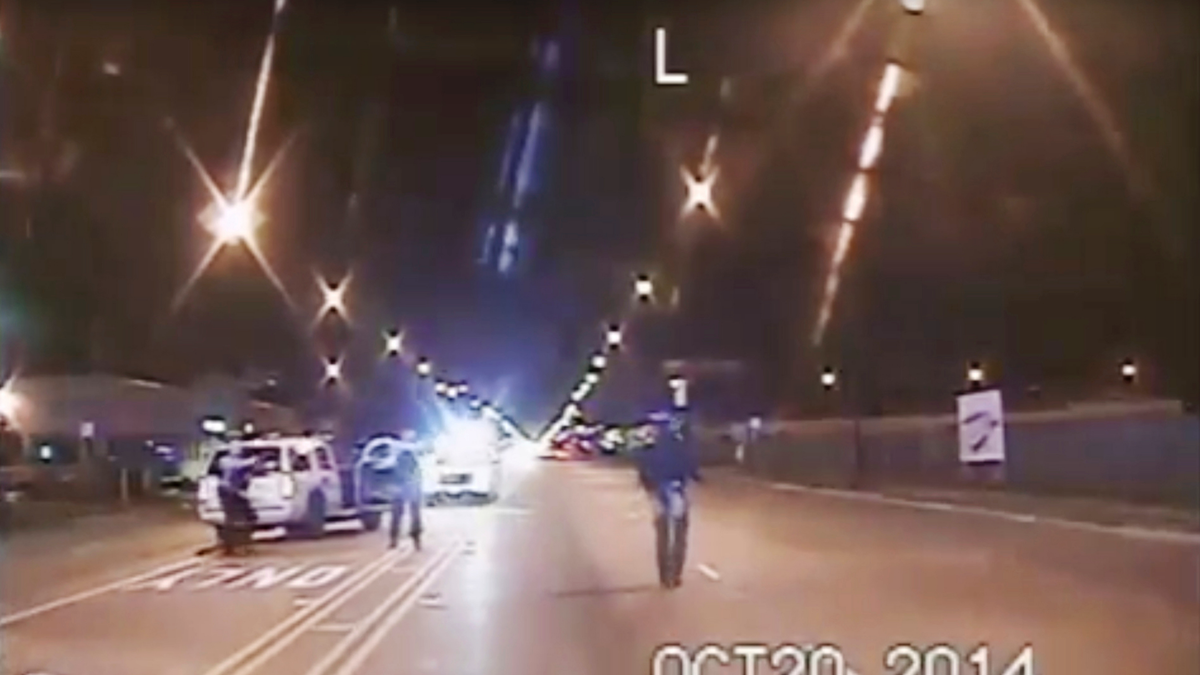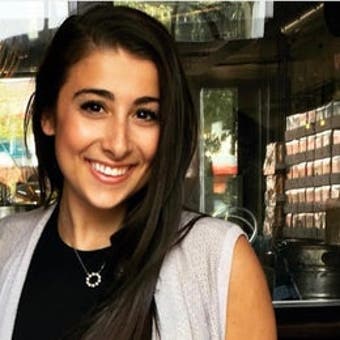Chicago officials are ‘ridiculous’ to cut police funding amid crime rises: FOP president
Chicago Fraternal Order of Police President John Catanzara tells ‘Fox & Friends’ crime in the city is ‘reaching historic levels.’
Chicago Police Department on Sunday submitted its third reform report to an independent, federal' mandated monitor – filing 93% more documents than in the two prior reports and ramping up efforts in the pace and progress of police reform, officials said.
The police department, otherwise known as CPD, submitted 8,102 documents during Independent Monitoring Period No. 3, the department said.
"This is a ceiling, not a floor," Chicago Police Superintendent David Brown said during a Friday press briefing ahead of the report’s release. "It should not be just an exercise in the checking the boxes. It should lead to our department's cultural change, should be transformational."

Chicago police Superintendent David Brown, center, walks outside Advocate Illinois Masonic Medical Center to provide information about the police shooting on Thursday, July 30, 2020. (Abel Uribe/Chicago Tribune/Tribune News Service via Getty Images) (Getty Images)
At the top of the list for police reform include training programs for department personnel and supervision for officers while on duty. Community engagement, with an emphasis on neighborhood policing and impartial policing policies, are also some of the many areas of reform, as well as efforts in transparency, victims services, support service for the officers and transparency.
CPD sought the input of focus groups made up of randomly selected people who signed up online. According to the report, about 120 individuals from more than 40 "community groups" took part in the focus groups. CPD also got more than 8,000 public responses from surveys including those on the topics of the department’s response to hate crimes; its handling of sexual misconduct; and interactions with children, religious groups and people with disabilities, among others.
CHICAGO RECORDS HIGHEST JANUARY MURDER RATE IN FOUR YEARS
The police department’s Unity of Command and Span of Control pilot program is designed to improve supervision, the report says.
"The first limits the number of officers any one sergeant must supervise and the second allows the same supervisor to monitor and mentor the same group of officers every day," the report explains.
The department also created a department-wide anti-retaliation directive, noting that the previous lack of any sort of policy on the topic – whether for police or the public – "made it difficult for members to clearly identify when retaliation was occurring, made reporting retaliation difficult if it occurred within a person’s chain of command, and left discipline in somewhat of a gray area since retaliatory conduct does not always fit neatly within the parameters of other prohibited conduct," the report states.
CPD looked to other departments, such as those in New Orleans, Baltimore and New York City that have either gone through the consent decree process or have enacted successful programs.
The thousands of documents submitted Sunday include those that were catching up with the backlog of previously due documents and the files submitted over the summer in connection with the police department’s response to civil unrest in the city.
The reporting period was supposed to span from March to September 2020, but was extended as a result of the COVID-19 outbreak and department requirements during the unrest period.

Members of the Chicago Police Department confronted protesters during a march for Breonna Taylor on September 23, 2020 in Chicago, Illinois. (Photo by Natasha Moustache/Getty Images) (Getty Images)
"That's no small thing that we submitted 93% more of the items than the previous reporting period and twice as many as the two previous reporting periods combined," Brown said. "It’s an exercise in quantity and quality, but overall, it’s about changing the culture."
Starting March 2019, CPD was ordered to carry out department-wide reform under the watchful eye of a federal judge and a court-appointment independent monitor, Maggie Hickey. Hickey, who heads the CPD Monitoring Team, did not respond to Fox News’ request seeking comment.
The need for a consent decree was prompted by concerns surrounding excessive use of force and systemic racism spurred by the 2014 police shooting of Laquan McDonald. Former Chicago police officer Jason Van Dyke, who is White, was convicted in 2018 of murdering McDonald after video surfaced showing him shooting the Black teenager 16 times.

In this Oct. 20, 2014 file image taken from dash-cam video provided by the Chicago Police Department, Laquan McDonald, right, walks down the street moments before being fatally shot by Chicago Police officer Jason Van Dyke in Chicago. (Chicago Police Department via AP, File)
In addition to the thousands of documents submitted, CPD also revised 65 existing department policies, such as those involving the prohibition of racial profiling and other biases, those related to sex crimes and the department’s gun-turn-in program, the report explains.
CHICAGO POLICE CHARGE BOY, 13, WITH FELONY FOR GUNPOINT CARJACKING
CPD also added 42 "reform-focused members" to units handling the consent decree and excused those tasked with overseeing the reforms from being deployed during a time when the department faced challenges related to the pandemic, civil unrest and high violent crime.
"Never in the history of the Department have our officers had to contend with a global health pandemic, civil unrest, and the scourge of rising fun violence simultaneously," Brown said in the 172-page report. "Despite these challenges, Department members worked tirelessly to meet the requirements of the consent decree."

Chicago police officers investigate an officer-involved shooting outside the department's 25th district station on July 30, 2020. According to police, a prisoner was shot and and two officers were wounded. (Antonio Perez/Chicago Tribune/Tribune News Service via Getty Images) (Getty Images)
Hickey’s office has not yet submitted its assessment of the latest report, but is expected to do so in the coming weeks.
"I would sum up where we're trying to go really with one word, and that's professionalism," said Robert Boik, executive director of the office of constitutional policing and reform. "We have to be a more professional police department, not only in how we interact with one another, but how supervisors interact with their subordinates, how officers interact with members of the community, how command staff interacts with officers. So that culture change is really what we need to emphasize and focus on."
Brown took on the role of police superintendent at the end of April 2020, more than a year after the consent decree took effect and just before the second independent monitoring report was submitted. Speaking to past efforts toward the consent decree, the police department acknowledged that "the pace of reform needed to move faster," the report states.
During Friday’s press briefing, Brown said the department’s past compliance rates – the first was only approximately 30% – were "disappointing" and needed to be taken more seriously.
"I really began to try to understand what was the department's view of the consent decree and reform overall," Brown said.
He recalled a time when it seemed like some people in the department thought the decree would simply "go away."

Police keep watch as a small group of demonstrators protest near Trump Tower on January 07, 2021 in Chicago, Illinois. (Photo by Scott Olson/Getty Images)
"I was very hands-on," he said. "I believe two things about reform: number one, it can be it could be very helpful in making your department more professional. But number two, it can also help you in your efforts to reduce crime because a more professional, well-trained police workforce has a better chance at building trust, gaining respect of the community, solving crime and enforcing the law in a positive way. So I don't think reform is a small thing."
CLICK HERE TO GET THE FOX NEWS APP
He said he views the police department’s efforts in training and policy as running "neck and neck" in terms of importance for him.
"I don't think we can be a police leader in today's policing landscape and not be a champion of reform. And so it's been thrust upon me to promote people to the leadership team that I believe are committed to reform and to have those tough conversations with people who I think are not," Brown said. "It really is a top-down type of effort. If the department doesn't see that I take reform seriously, no one else in the department would take it seriously."




